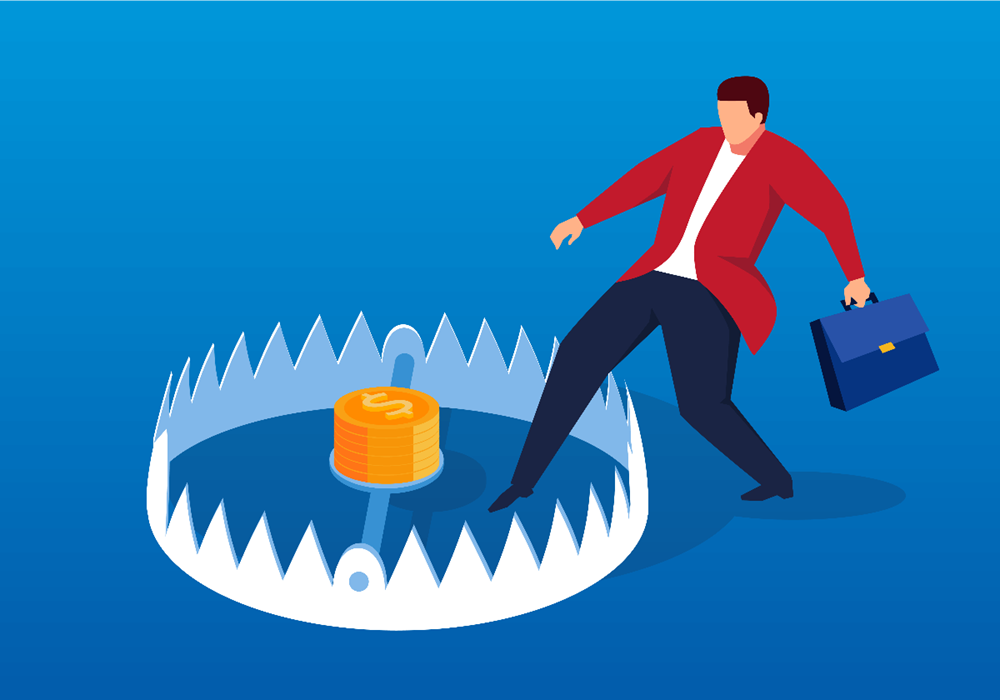

Since the national state of disaster was declared on 15 March, the COVID-19 pandemic has been with us for longer than many of us expected. There have been serious financial consequences as the global economy has buckled under the fall out of the pandemic. Now, more than ever, is the time to review your finances and make an effort to avoid any debt traps – don’t worry,WageWise is here to help you.
“A debt trap is a situation in which a debt is difficult or impossible to repay, often because of high interest rates.”
1. Take good credit and not bad credit
Credit can be very helpful as it gives you access to things that you may not be able to have otherwise. BUT, buying things on credit can be a slippery slope. You must only use good credit for things that gain value like property and education. Don’t take bad credit for things that lose value like clothing store credit and gadgets .
TOP TIP: While things remain uncertain with COVID-19, avoid taking on any new debt.
2. Stick to the terms of the contract
When you take credit, there will be a legal contract which sets out all of the terms (such as interest rates and minimum repayments). It is important to stick to these terms so that you don’t fall behind. Sticking to the terms will also give you a good credit profile.
TOP TIP: The amount of interest charged is regulated by law and should never be more than 18.75% per year.
3. Catch up after your payment holiday
Payment holidays were offered at the start of the COVID-19 pandemic and involved a 3-month relief period for those who couldn’t pay their premiums. These payment holidays only delayed the payments and did not remove them. The sooner you start paying again, the better.
TOP TIP: If you are still unable to pay, you need to talk to your bank who might help with an easier payment plan or even extending your payment holiday.
4. Explore other sources of income
Having another form of income is always a good idea. If you have a special skill then try market yourself after your normal working hours or over weekends. If you qualify for a bonus, use this money to pay off some debt. Do an inventory of your house, maybe a garage sale can bring in a few extra Rands.
TOP TIP: Small lifestyle changes can make a big difference and can allow you to put more money into your credit repayments.
5. Avoid loan sharks at all costs
If a person or company wants to lend money and charge interest, they must be a registered credit provider. Unfortunately, there are around 40 000 unregistered loan sharks in South Africa. Loan sharks overcharge for their loans and can have interest rates as high as 30 – 50%.
TOP TIP: On top of high interest rates, loan sharks often have extra fees and admin costs which makes paying back the loan very hard.
6. Get help if you need it
If you have too much debt, you may be over-indebted. In this situation you may find that you don’t have enough money to pay all your debts and other obligations and things become very difficult. If you are struggling, get help from a debt counsellor.
TOP TIP: Speak to your bank about debt counselling or visit the National Credit Regulator’s website at www.ncr.org.za or call them on 0860 627 627.